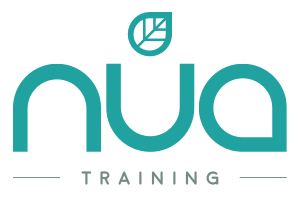Emma recently joined a large media company in London. The business is ambitious, the pace is fast, every month there seems to be another new initiative to implement. Emma is constantly juggling her time between getting to grips with her new role as a sales manager, bringing in business and dealing with new initiatives – every project is half finished, her to-do list only gets longer and the stress is affecting her mood. Worry keeps her awake at night, she constantly snaps at her two young children, and the supper club she enjoyed running as a sideline business now feels like a massive burden.
Sound familiar?
Information overload, impossible work load, client demands – it’s fast becoming a universal story. Yet some people seem to manage it. They take everything in their stride, rise effortlessly to every challenge, are always on top of their work and never stay late. They are surely superhuman with powers that the rest of us can only dream of!
Well no, actually.
They are simply organised and efficient in the way they work – something that you too can achieve, but it may mean a bit of grit and determination to change deeply ingrained habits.
So how can you be more productive in how you work?
Focus
In his highly acclaimed book The Organised Mind, Daniel Levitin explains how our brains can only focus on one thing at a time. Unfortunately, evolution hasn’t caught up with our ever-changing tech-driven world and research has proven time and again that multi-tasking does not work. It takes more energy and compromises creative thinking and the ability to problem solve. So, turn off distractions – emails, social media notifications, your phone! Give yourself the opportunity to focus on the task at hand.
Be decisive
Look closely at how you make decisions. It’s easy to agonise endlessly about inconsequential everyday things – as the popular saying goes, ‘don’t sweat the small stuff’!
Be proactive
Are you allowing the more challenging, longer-term tasks to languish on your to-do list? Bigger projects often feel daunting, but a 20-30 minute planning session will make all the difference. Break down the project into manageable chunks, identify the first thing to do and concentrate on getting it done. Once you’ve completed the first action you can move onto the next and so on.
Write it down!
In his book Getting Things Done, Dave Allen advocates writing down everything, from lists of things to be done to all the ideas that pop into your head. Our brains get so overloaded trying to remember everything, it becomes a constant distraction. Get yourself a notebook or make notes on your phone, just make sure you do it!
If your list is long you can subdivide it into work, home, social etc. I also find it useful to create a list of smaller tasks – emails to send, calls to make, meetings to arrange. Whenever I have a few spare minutes I can quickly work through one of those lists.
Incidentally, it also works well for books to read, films to watch and restaurants to go to – those lists live in my phone and when I read a review or get a recommendation from a friend I add it to the list.
Clarify
Review your lists regularly. If no action is required you can delete it or keep it for reference. For tasks that require action ask yourself if it can be done in two minutes or less? If yes, then do it. Or allow a specific time in your day to do all your two minute tasks – you’ll be amazed how much you can tick off your list if you apply this rule!
Review progress
At the end of the day write a to-do list, which you can then review first thing the next morning to prioritise. Always think: what is going to help me on the sales front? Reflect on your progress versus your goals and plan at least once a week.
Plan ahead
Make decisions about how you tackle your action lists based on available time, your energy levels and what else you’re doing.
Structure your day
Don’t get sucked into responding to email for hours as soon as you sit at your desk. Apply the 2-minute rule, give yourself 15 minutes to do quick jobs, then start on your project work and next actions such as calls to make, meetings to arrange – be proactive rather than reactive. But do also schedule a time in your day for the reactive stuff that will need to be done.
Manage your email
A full inbox is stressful! Just like clearing out your wardrobe, your inbox needs to be regularly. Delete all the emails you don’t need, set up folders for important information – enjoy the Zen-like feeling a clear inbox brings.
The amount of time we have each day is finite. Working late every night or taking work home with is a temporary fix, a long-term sustainable solution is the only positive way forward. Try my tips for a week or two and see the difference – if you can use every moment of your working day as efficiently as possible, I absolutely believe that you will achieve so much more than you ever thought possible.
If you enjoyed reading this article, and being focused is something you find hard, you may also be interested in reading our tips about listening www.nuatraining.co.uk/media-sales-tips-how-to-be-a-better-listener
If you want to find out more about how Nua Training can help you fast track your sales skills, call us on 01372 700026 or send an email to info@nuatraining.co.uk or check out our courses at www.nuatraining.co.uk.

